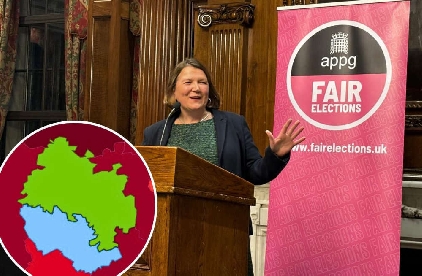
Herefordshire Council appears to have made savings of less than £60,000 after spending nearly ten times that amount on money-saving advice from consultants.
In September last year the council commissioned PriceWaterhouseCoopers to lead “cross-council transformational change”, by advising on digitising public services and streamlining internal processes, at a cost of £573,000.
Labelled the Thrive Transformation Programme, it was supposed to bring in savings of £2.6 million as part of a raft of cost-saving measures to keep the council’s spending within budget. In the year to April the council overspent by nearly £9 million.
In the current financial year, while it has already achieved savings totalling £8.9 million, £5 million of further savings is rated as “at risk”, according to a report published ahead of a council cabinet meeting last week.
And over half of that figure – £2,541,000 – is down to Thrive failing to deliver.
At the meeting, Independents for Herefordshire leader Coun Liz Harvey said the council “does not seem to provide the same level of detail to explain the reasons for shortfalls in delivery of savings”.
“Why is the Thrive programme failing to thrive?” she asked.
While not answering this directly, cabinet support member Coun Nick Mason said he was “delighted” that the council has just appointed Rosie Thomas-Easton as interim director of strategy and transformation, “and we are making great progress now”.
Asked about the apparent low return on the investment in the Thrive programme, a council spokesperson said: “Transformational savings are largely included within directorate budgets rather than within the corporate transformation budget, so not all savings will be listed as programme savings.”
They gave as an example saving from recommissioning the council’s waste contract, which brought savings of £800,000.
“We know there is still lots more work to do to deliver our service transformation, and associated savings and progress is monitored,” the spokesperson said.
“We have a prudent approach to financial management and so will not move savings out of the ‘at risk’ category until there is evidence of delivery,” they added.


 Plans for new rural railway station still being worked up
Plans for new rural railway station still being worked up
 Herefordshire Council overspend stubbornly high
Herefordshire Council overspend stubbornly high
 Flood-hit family beg to be moved
Flood-hit family beg to be moved
 Support events available in Monmouthshire for Pension Credit
Support events available in Monmouthshire for Pension Credit
 Anger at permit for unapproved AD plant
Anger at permit for unapproved AD plant
 Herefordshire ‘should have had more help after floods’ says MP
Herefordshire ‘should have had more help after floods’ says MP
 Driver airlifted to hospital following Hereford crash
Driver airlifted to hospital following Hereford crash
 More than 10,000 Herefordians sign national petition calling for general election
More than 10,000 Herefordians sign national petition calling for general election
